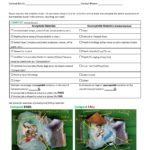SF ZERO WASTE INITIATIVES
San Francisco is a progressive city when it comes to mandating recycling and composting initiatives. We work closely with city and state officials to develop legislation that benefits both the customer and the City’s sustainability goals.
Refuse Separation Ordinance: Large Generators and Zero Waste Facilitators
-
- The Refuse Separation Ordinance (No. 180646), effective July 1, 2019, requires that Large Refuse Generators in San Francisco have a recycling, composting, and trash audit every 3 years to ensure compliance with the City of San Francisco’s Mandatory Recycling and Composting Ordinance.
- Large Refuse Generators are defined as accounts that have a roll-off compactor or at least 40 cubic yards of uncompacted refuse (recyclables, compostables, and trash) per week. When any type of compactor is used, the volume of compacted refuse shall be multiplied times three to determine actual volume collected. Your Recology bill will reflect whether your business is considered a Large Refuse Generator.
- An audit involves the City (Department of the Environment) or Recology visually inspecting, photographing, and documenting recycling, composting, and trash container contents to determine if the property is compliant.
- An audit will receive a pass when the contents of your recycling, composting, and trash containers are found to have levels of contamination lower than 5% for compostables, 10% for recyclables, and 25% for trash, respectively. Contamination is defined as unacceptable materials found in a designated container. Find out more about how Recology Diversion Auditors complete Large Refuse Generator audits in our video series. There is a no-tolerance policy for electronic waste (E-waste) or Hazardous Waste found in any container.
- If the audit fails, properties are required to hire a Zero Waste Facilitator, defined as a qualified person(s) who serves exclusively to help a property comply with adequate refuse separation. This service may include sorting materials into their proper containers and educating property managers and/or tenants on separation. Failure to hire a Zero Waste Facilitator could result in substantial fines. Please refer to the ordinance language for details. An official copy can be found here.
- For more details, please see Frequently Asked Questions and other resources below. In order to help Large Generators succeed in passing their waste audits, Recology has compiled a ‘Self-Assessment’ process outlined in the form and video below.
Zero Waste Facilitator Tutorial
San Francisco’s Mandatory Recycling and Composting Ordinance
San Francisco’s Mandatory Recycling and Composting Ordinance requires San Francisco residents and businesses to properly separate recyclables and compostables and keep them out of the landfill.
This means that businesses and property owners are required to provide recycling and composting containers in convenient locations for customers and tenants. This also includes educating tenants, employees, contractors, and janitors about the recycling programs available to them.
Businesses and apartment buildings out of compliance with the Mandatory Ordinance may be subject to enforcement penalties. Renters can report unresponsive property managers by using the anonymous form at www.SFEnvironment.org/mandatory.
Mandatory Construction and Demolition Recycling Ordinance
The City and County of San Francisco’s mandatory ordinance applies to all commercial and residential indoor and outdoor construction projects including repairs, improvements, additions, remodeling, and demolitions. Under the C&D Ordinance in the City and County of San Francisco, C&D debris must:
- Be transported by a registered C&D provider
- Go to a registered construction debris recycling facility and cannot go to landfill
- Be taken to a registered facility that can process mixed C&D debris and divert at least 65% from landfill
CALIFORNIA STATE LAW
AB 341
Mandatory Commercial Recycling
Mandatory Commercial Recycling was among the first measures identified and adopted in the AB 32 Scoping Plan by the California Air Resources Board pursuant to the California Global Warming Solutions Act of 2006. The Mandatory Commercial Recycling Measure focuses on increased commercial waste diversion from landfills as a method to reduce GHG emissions. It is designed to achieve a reduction in GHG emissions of 5 million metric tons of carbon dioxide (CO2) equivalents in the State.
A business (including public entities) that generates four cubic yards, or more, of commercial solid waste per week, or is a multifamily residential dwelling of five units or more, shall arrange for recycling services. Businesses can take one, or any combination of, the following in order to reduce, reuse, recycle, compost or otherwise divert solid waste from disposal:
-
-
- Self-haul.
- Subscribe to a hauler.
- Arrange for the pickup of recyclable materials.
-
In San Francisco, businesses and public entities are able to subscribe to our composting and recycling services or self-haul materials to the SF Transfer Station. Property owners of a commercial business or multifamily residential dwelling may also require tenants to source separate their recyclable materials to aid in compliance.
AB 1826
In October 2014, California passed Assembly Bill 1826 (AB 1826), mandating all businesses and commercial establishments, including multi-family units, to arrange for organics recycling and hauling. Organic waste is defined as food waste, green waste, landscaping and pruning waste, non-hazardous wood waste, and food soiled paper waste that is mixed with food waste.
Summary of AB 1826:
-
- April 1, 2016: Businesses and Multi-family complexes that generate 8 cubic yards of organic waste per week shall arrange for organic waste recycling services. (First Threshold)
- January 1, 2017: Businesses and Multi-family complexes that generate 4 cubic yards of organic waste per week shall arrange for organic waste recycling services. (Second Threshold)
- January 1, 2019: Businesses and Multi-family complexes that generate 4 cubic yards of solid waste “trash” per week shall arrange for organic waste recycling services. (Third Threshold)
- Summer/Fall 2021: If CalRecycle determines that the statewide disposal of organic waste in 2020 hasn’t been reduced by 50% (when compared to 2014), requirements will expand to Businesses and Multi-family complexes that generate 2 cubic yards of solid waste per week.
A business that meets the waste generation threshold shall engage in one of the following organic recycling activities:
-
- Source separate organic waste from other waste and participate in an organic waste recycling service that includes collection and recycling of organic waste.
- Recycle its organic waste on site, or self-haul its organic waste off site for recycling.
Additional points related to businesses:
-
- A business that is a property owner may require a lessee or tenant of that property to source separate their organic waste to aid in compliance.
- All businesses that contract for gardening or landscaping services must stipulate that the contractor recycle the resulting gardening or landscaping waste.
- A multi-family complex is not required to recycle food waste (but is still required to recycle green waste).
More information on the organic recycling requirements can be viewed here.


